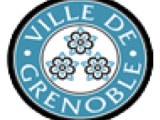La bataille du Chili
- Taille de police Réduire la taille de la police Augmenter la taille de police
- Publié dans Partenariat Chili
- Lu 15741 fois
- Imprimer
La Bataille du Chili / La Batalla de Chile
(Patricio Guzman, Chili - France - Cuba - Vénézuéla, 1975)
En partenariat avec le Collectif "Chili 1973-2013"
Attention, ce film en trois parties, sera projeté
les MARDIS 8, 22 et 29 octobre 2013 à 20h
Salle Juliet Berto - Grenoble
"A l'âge de 30 ans, j'ai été le témoin privilégié de la révolution chilienne. Devant mes yeux de jeune cinéaste éclate une révolution soutenue par des millions de personnes rêvant de justice sociale.
La Bataille du Chili n'est pas un film journalistique. Ce n'est pas non plus un film d'archives.
C'est la preuve cinématographique, jour après jour, de l'agonie d'une expérience révolutionnaire qui touche le monde entier parce qu'elle se présente comme une expérience pacifique du passage au socialisme.
Quelques jours après le coup d'Etat, j'ai été arrêté chez moi et menacé d'exécution; par la suite, j'ai été emprisonné durant 15 jours au Stade National. Quand j'ai recouvré la liberté, je suis parti du Chili avec tout le matériel, en direction de l'Europe et Cuba, où j'ai réalisé la post-production. Jorge Muller Silva, le chef opérateur du film, a été arrêté par la police militaire de Pinochet en novembre 1974.
Il fait partie de ces milliers de disparus chiliens..."
Patricio Guzman.
At the age of 30 I witnessed the Chilean revolution first hand. The revolution, supported by millions
who were seeking social justice, happened right before my young film maker's eyes.
The Battle of Chile is not a journalistic film, nor is it an archival piece.
It's the cinematographic testament, day after day, of the agony of a revolutionary experiment
which affected the whole world because it represented a non-violent transition to socialism.
A few days after the coup I was arrested at my home and subsequently threatened with execution.
I was imprisoned in the national stadium for 2 weeks. When I was freed I left Chile with all my material and did the
post-production in Europe and Cuba. Jorge Muller Silva the cinematographer on the film
was arrested by Pinochet's military police in November 1974.
He's one of the thousands of Chilean disappeared…
Patricio Guzman
Patricio Guzman est un réalisateur chilien. Il est connu pour ses nombreux documentaires réalisés sur son pays. Intéressé par le cinéma dès son plus jeune âge, Patricio Guzman étudie à l’Ecole officielle de l’Art Cinématographique à Madrid de 1966 à 1969.
Marqué par le coup d’état de Pinochet en 1973, Guzman s’emploie à montrer les ravages d’un Chili dévasté. Avec l’aide du cinéaste Chris Marker, il produit et réalise, entre 1973 et 1979, une trilogie documentaire qui fera date dans l'histoire du film politique au cinéma : La Bataille du Chili. Cette trilogie (La lutte d'un peuple sans armes, L'insurrection de la bourgeoisie et Le Pouvoir populaire) s’attache à montrer les derniers moments du gouvernement Allende et remportera de nombreux prix.
Menacé dans son pays, le réalisateur fuit et trouve exil en France. Mais c’est vers son pays que Patricio Guzman trouve l’inspiration. Il réalise de nombreux documentaires sur les changements qui se produisent au Chili : Au nom de Dieu et La Croix du sud portent sur la religion ; Chili, la mémoire obstinée est un documentaire sur l’oubli imposé par Pinochet sur le peuple.
Deux autres documentaires sont réalisés sur deux hommes qui ont marqué le Chili : Le Cas Pinochet (2001) sur l’arrestation du dictateur et Salvador Allende (2004), en hommage au président de la république assassiné.
Habitué du Festival de Cannes (Le Cas Pinochet fut montré à la Semaine de la Critique tandis que Salvador Allende était en Sélection officielle), Patricio Guzman revient derrière la caméra après plus de 6 ans d’absence en présentant à Cannes, lors d'une séance spéciale, son nouveau film, La Nostalgie de la lumière.
The Battle of Chile
Patricio Guzman is a Chilean director who's well known for the many documentaries he's made in his country. Interested in film making since childhood, Patricio Guzman studied at the Official School of Cinematographic Arts in MAdrid from 1966 to 1969.
Deeply affected by Pinochet's coup d'etat in 1973 Guzman began to document the devastation of a ravaged Chile. With the help of film-maker Chris Marker, he produced and directed between 1973 and 1979 a documentary trilogy which would go on to be a turning point in the history of political cinema; The Battle For Chile. This trilogy, (The struggle of an unarmed people, The insurrection of the bourgeoisie and The people’s power) was an attempt to show the last moments of the Allende government and went on to win many awards.
Threatened in his own country, Guzman fled and found refuge in France. But it was his own country that would continue to inspire him. He directed several documentaries on the changes that were going on in Chile: In the Name of God andThe Southern Cross were about religion; Chile Obstinate Memory is a film about the collective amnesia which Pinochet imposed on the Chilean people.
Two other films were made about two men who had made their mark on Chile: The Pinochet Case (2001) about the the dictator’s arrest and Salvador Allende, an hommage to the murdered president.
A regular at the Cannes film festival (The Pinochet Case was shown in the Critics’ week and Salvador Allende was in the official competition) Patricio Guzman went back behind the camera after an absence of more than six years when he showed The Nostalgia for the Light in a special screening at Cannes.
Informations supplémentaires
- Référence: Référence

